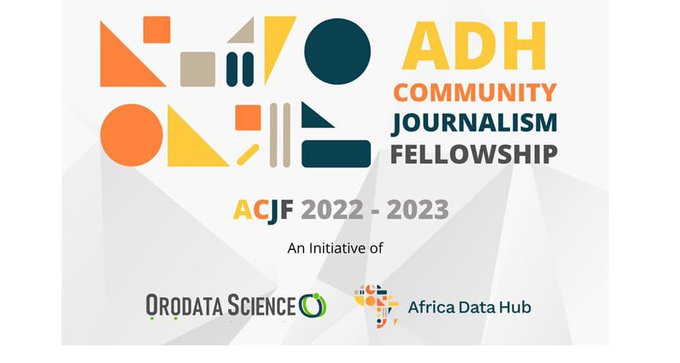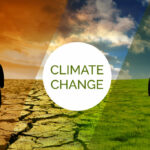Orodata Science has announced the call for applications for the third cohort of the African Data Hub (ADH) community journalism fellowship.
According to the organisation, this new call is designed differently from the others as it seeks reporters focused on documenting and reporting on the health challenges emanating from the flood devastation of several parts of Nigeria these past few months.
Naira redesign: ISWAP begins ransom collection in CFAs
COP27: Buhari calls for urgent climate actions
It noted that the last decade has seen a rapid increase in environmental and climate crises globally.
In a statement, the organisation said: “In sub-Saharan Africa, disasters have become yearly occurrences, ravaging properties, lives, farmland, livestock, and other forms of trade, while rendering millions homeless.
“The financial loss is gargantuan. Experts have warned that Africa is on the verge of losing billions yearly to these disasters. While Nigeria sees flooding every year, the last few months have been quite devastating. According to data intelligence and story platform Twentyten, as of the 10th of October 2022, about 33 out of 36 states of Nigeria have been affected by floods.
“Twentyten further states that 2.5 million persons have been displaced and that 1.3 million persons have been rendered homeless. Other reported figures include the number of persons injured – 2407, lives lost – 603, hectares of land lost – 108,392, and houses completely damaged – 82,053. For local communities, the effects are deeper. The lives of families on the edge to escape poverty and starvation will become much harder and women and girls will be disproportionately affected.
“This new call seeks reporters who want to report on the health implications as communities struggle to access food, shelter, and health services. It further seeks to amplify how the already crumbling poor health system of local communities has been hugely impacted by climate and environmental disasters, while documenting, collecting data, and connecting the dots on the root causes which have been related to unusual rainfalls, overflowing local rivers and dams, inadequate infrastructure, non-implementation of environmental guidelines, among others.
“This fellowship program will support community journalists with grants, capacity development, and tools to produce data-driven and evidence-based reports on the selected theme. These reports will chart insights towards proper resource planning, emergency planning, policy change, effective public service delivery, grassroots development, and improvement of the quality of life.
“The programme will prioritize stories deep-diving into community health challenges related to climate change, climate disaster, flooding, unusual river, and dam overflow, as they affect local communities and women and girls especially.
“The ADH Community Journalism Fellowship (ACJF) is an initiative of Orodata Science whose mission is to continue to democratize data, and knowledge toward solutions that impact the lives of millions.
“The fellows will participate in a hands-on capacity building Bootcamp that will provide training on climate reporting, data storytelling, and mapping techniques. Journalists will also learn how to source, analyze and visualize data in engaging and compelling ways.
“The fellowship will provide a grant sum for each fellow to support their reports. Published reports from fellows will be remade into short video documentaries. The fellows will also receive advice from mentors to improve their reporting and access to the entire ADH Community.
“The fellowship will provide additional editorial and technical support such as data research and analysis, data visualizations, infographics, and mapping for the stories produced by the fellows. Applicants must be journalists based in Nigeria.
“The number of grants available is limited, therefore the first 10-20 pitches received will stand the best chance of being considered. Pitches must meet our selected theme.
“Pitches from freelance reporters and staff from all types of media organizations, especially community-based are encouraged to apply.
“All pitches must be no more than 250 words. The pitch should highlight the key issue you want to focus on, why it is relevant to the program, and the extent to which it is under-reported. Applicants are expected to pitch to develop stories in the communities in the states where they reside or a close neighboring community. Applicants are expected to participate in the two weeks Data Journalism Bootcamp online. Dates will be communicated.
“Indicate why you are the right person to report it and the access you already have. Include a letter or email from the editor of a publication who is interested in publishing your story.”
Intending applicants should apply here

 Join Daily Trust WhatsApp Community For Quick Access To News and Happenings Around You.
Join Daily Trust WhatsApp Community For Quick Access To News and Happenings Around You.


